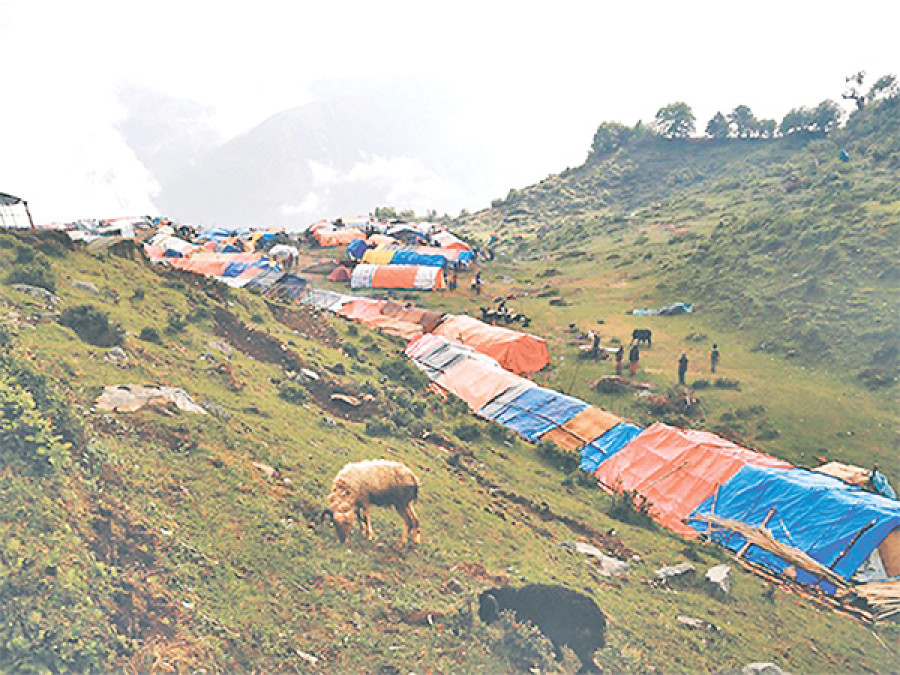Miscellaneous
UN concerned over quake victims’ woes
With the winter approaching, the United Nations has expressed concerns about providing food and warm shelter to earthquake-affected people six months after the disaster.
With the winter approaching, the United Nations has expressed concerns about providing food and warm shelter to earthquake-affected people six months after the disaster.
The UN Office for the Coordination of Humanitarian Affairs in a statement said that six months after the devastating earthquakes that shook the nation in April, shelter and food remain top priorities as winter approaches.
“With the winter on the way, we must ensure adequate shelter and food security, particularly for more than 80,000 families,” said Jamie McGoldrick, UN Humanitarian Coordinator in Nepal.
McGoldrick added that short supply of fuel since the end of September has affected distribution of goods to the quake victims and also urged for a quick resolution to the fuel shortage so that winter goods can be quickly delivered to vulnerable households before the snow.
The April and May earthquakes left 8,891 people dead, destroyed more than 600,000 houses and damaged 290,000 others. During the height of the emergency, some 188,900 people were temporarily displaced.
Over the past six months, humanitarian partners provided food to over 1.4 million people, established temporary classrooms for 300,000 children and supported health authorities to restore all damaged health facilities by June.
Concerted efforts ensured that there were no disease outbreaks. To reach remote and isolated villages, last mile logistics operations employed innovative and traditional methods of delivering assistance with 16,000 porters and hundreds of mules. Over 500,000 people received multi-purpose cash assistance, which helped them bridge the economic gap caused by devastated livelihoods.
The Humanitarian Country Team also stated that it is working very closely with Nepal government and other partners to ensure a smooth transition to recovery and reconstruction.
“The Humanitarian Country Team is looking forward to the establishment of the National Reconstruction Authority,” McGoldrick said. “Once it becomes operational, we anticipate that we will start to see the rapid expansion of reconstruction across the earthquake-affected areas.”
Meanwhile, Oxfam has also urged the government to reinstate the National Reconstruction Agency (NRA) to provide relief to the quake victims and expressed concern about resolving the fuel crisis to before it too late to deliver winter supplies to the affected communities.
“The Nepal government must put recovery efforts back on track by immediately passing the bill that will reinstate the NRA. It must also urgently resolve the ongoing fuel crisis before it is too late for us to deliver winter supplies to affected communities,” said John Augsburger, Oxfam Humanitarian Program director in Nepal.
The NRA has remained in limbo after the government legislation that originally created it lapsed almost two months ago—a replacement bill to renew its legal mandate has yet to be passed by parliament.
The statement further read that the fuel crisis is narrowing the window Oxfam has to reach communities before the temperature drop below zero in mountainous districts which will take its toll on earthquake survivors—particularly the elderly, pregnant women and children.




 8.12°C Kathmandu
8.12°C Kathmandu









